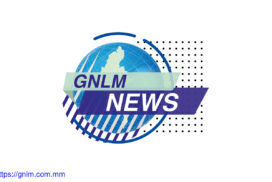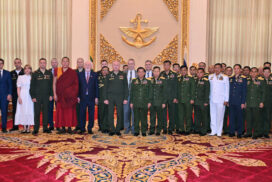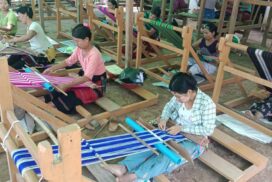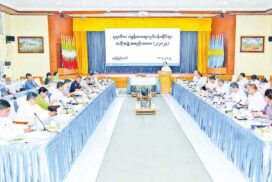The government takes charge of overseeing primary, middle, and high school levels in basic education institutions, with a focus on cultivating qualified citizens year after year. To streamline the management of private schools, the Education Ministry has established regional/state private school supervisory committees, including representation from the Nay Pyi Taw Council Area. These committees are entrusted with scrutinizing applications for newly established private schools and ensuring the lawful operation of existing ones.
In a concerted effort to advance the National Education Strategic Plan (2021-2030), both government-managed and private basic education schools, along with universities, are encouraged to collaborate. The overarching goal is to produce educated individuals who contribute to the socioeconomic development of the State. Private schools are urged to align with international education standards, foster critical thinking skills, conduct research aligned with national education policies, and equip students with knowledge and technologies that create employment opportunities.
Private education policies are designed to integrate the private sector into the broader education development landscape. This involves adhering to state education policies, continually enhancing the capacity of private school teachers, learners, and staff, and promoting increased participation from the private sector and international scholars across all educational domains.
Collaboration is a key in the establishment of internationally-recognized private schools, ensuring student qualifications, providing lifelong educational opportunities for all citizens, safeguarding the rights of private students and parents, and maintaining the independence of private schools from religious and political influences.
At the basic education level in private schools, the process involves seeking approvals from the relevant private school supervisory committee. This includes issuing registration certificates, renewing registration validity, upgrading schools, changing management officials, and modifying locations and school names. These procedures are in place to legally recognize and support the teaching and learning activities of private schools.
In cases of challenges, private schools can seek assistance from the supervisory committee to find optimal solutions, providing reassurance to parents and guardians. Ultimately, these measures contribute to the establishment of a secure and conducive learning environment for students in private schools.
All the work processes are purposed to benefit relevant private schools and their management boards with the aim of having legal recognition over the teaching and learning process of these schools. If they have some problems, they can seek help from the supervisory committee to be able to seek the best solutions and console the parents and guardians of students. Consequently, students from relevant private schools have safe and secure learning environment.
Implement strategic education plan through government and private schools
- January 20, 2024
- 240















